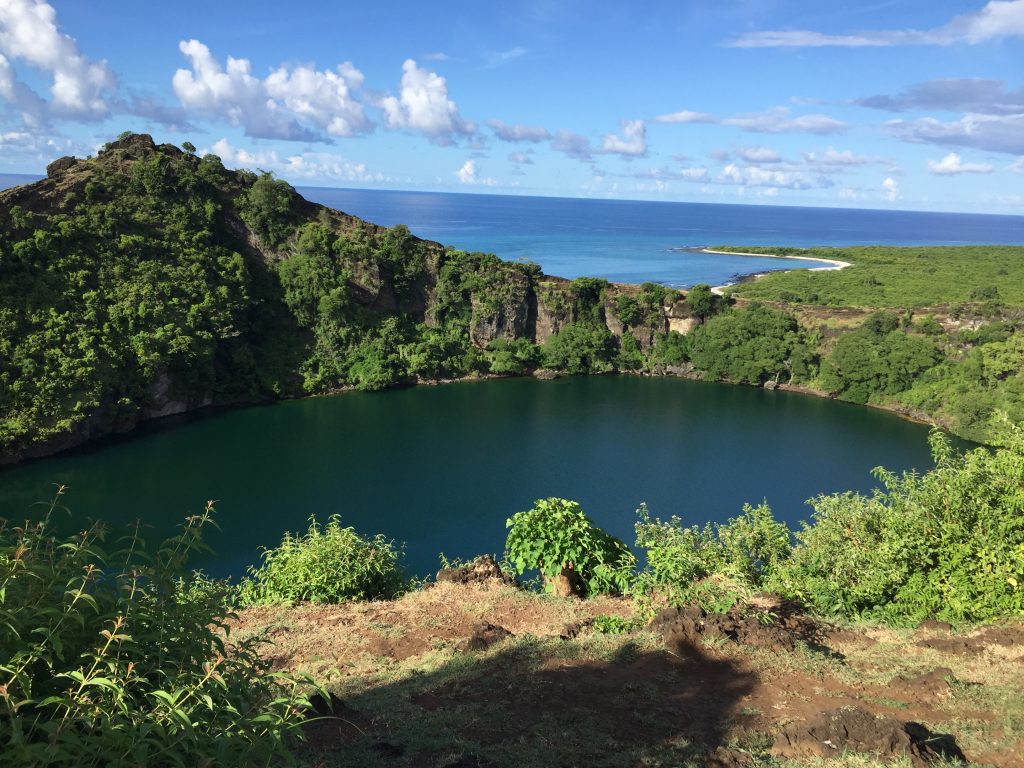COP 28: The Moroni Declaration adopted- what does that mean?
Following the 2016 Ministerial Conference on the Blue Economy in Mauritius integrating West African coastal countries, followed in November 2018 by the adoption of the Nairobi Declaration of Intent on the Sustainable Blue Economy, Seven African island states and five coastal countries in the Western Indian Ocean adopted the Moroni Declaration on Wednesday, 14 June, incorporating new elements. Explanations.
By Houmi Ahamed-Mikidache
“It is time to develop a model of sustainable economy, integrating the three pillars of sustainable development, namely the economy, the social and the environment”, says in Moroni Azali Assoumani, President of the Union of the Comoros, at the close of the three-day ministerial meeting from 12 to14 june .

In Comoros, African ministers collectively recognize on june 14 the specificities of African island states and the need to integrate them into continental policies, strategies and frameworks. Accompanied by the President of the Union of the Comoros, the current leader of the African Union, these ministers commit to work together to develop the value chains of the blue economy across the continental free trade area.
‘We need to look at the fisheries value chain. We know that today the majority of the industrial fishery is actually done by first nations, because they are geographically far away from Africa. Most industrial fisheries are made by them. And there’s a huge opportunity for us to develop value chains that are more local and can be done sustainably and that provide better outcomes in those economies and also help feed the growing need for fish-based protein. on the African continent using the free-trade zone African continental exchange”, explains Jean-Paul Adam, former Minister of Finance of Seychelles and Director of Technology, Climate Change and Natural Resource Management at the United Nations Economic Commission for Africa (UNECA), on the podcast “Your Voice”, on Radio Era Environnement.
In Moroni, the African ministers affirm their support for the Great Blue Wall initiative, born at COP 26, launched by Thomas Sberna, Regional Coordinator for Coastal and Ocean Resilience at the International Union for Conservation of Nature (IUCN). Presented in the Moroni Declaration as a flagship, transformative and collective approach, encouraging resilience in the face of climate change, the Great Blue Wall is also described as an emblematic initiative of the continent, led and implemented by Africa for Africa in collaboration with international partners and other island and coastal states as part of the African Union’s second 10-Year Agenda 2063 Implementation Plan and the United Nations Decade for oceanography for sustainable development.
Cape Verde, Guinea-Bissau, Kenya, Madagascar, Mauritius, Mozambique, Sao Tome and Principe, Seychelles, Somalia, South Africa, Tanzania and the Comoros claim to recognise the potential of the concept of the neighbouring Great Blue Wall or sister of the Great Green Wall. They call on the Green Climate Fund to set up a support programme in partnership with IUCN in particular. “We are looking at increasing investments in ecotourism, particularly in many of these countries that have committed to marine protected areas. These protected areas can have a huge potential to develop the tourism perspective by involving local people,” says Jean-Paul Adam on the podcast “Your Voice”.
In the Moroni Declaration, island and coastal states advocate for increased public and private investment and financing in sustainable coastal and marine value chains, including through the promotion of responsible fishing, green infrastructure, ecotourism, renewable energy, blue innovation. They also recognise the need to strengthen multi-hazard early warning systems in African island states. To address the biodiversity and climate crisis, these states support the importance of establishing a connected network of regenerative and inclusive coastal and marine landscapes and affirm their duty to protect sensitive and interconnected coastal and marine ecosystems on the continent.
The African ministers express their common desire to strengthen the institutional architecture of the African Islands Climate Commission, one of the three climate commissions recognized by the African Union. They call for a better coordination of African institutions that promote oceanography and support the obligation to strengthen institutional and regional expertise in climate science, open up new prospects for the creation of regional institutes of excellence integrating private, public and non-state actors.
States shall encourage the creation of policies and implementation mechanisms to accelerate inclusive ocean economic growth for the climate, nature and populations of coastal island states, which they point out, has the potential to generate at least two million blue jobs and benefit a minimum of 70 million people in island and coastal communities by 2030, in the Western Indian Ocean region. In fact, for these states, it is important to foster the development of small and medium-sized enterprises, innovation and entrepreneurship to create development opportunities for women and young people, especially in the circular economy.
The Moroni Declaration concludes on the obligation of African states to intervene in a coordinated manner in the face of risks and crimes at sea, particularly with regard to marine and coastal ecosystems and plastic pollution. The leaders commit to organizing an annual African Coast Guard Forum in collaboration with regional economic communities and intergovernmental organizations. States are encouraged to communicate in all international forums on the sustainable blue economy, and on the importance of implementing the Great Blue Wall. Next steps for these ministers: the African Climate Week in September in Nairobi, Kenya, the UN Secretary General’s Climate Ambition summit in September, and the COP 28 in Dubai in the United Arab Emirates from 30 November to 12 December.




